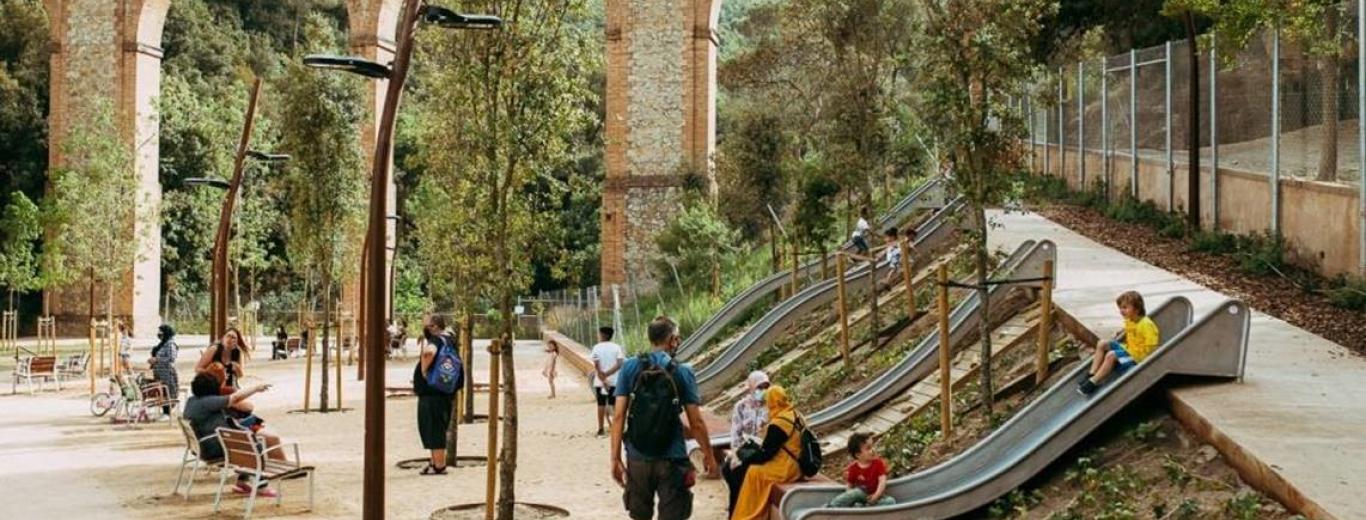Pla de barris de Barcelona

Objectius del projecte
Revertir les desigualtats entre els barris de la ciutat de Barcelona i generar oportunitats en aquells més vulnerables, treballant especialment l’apoderament dels veïns i veïnes. La finalitat és que s’organitzin i estableixin objectius i actuacions de millora de la vida col·lectiva al barri que enforteixin el seu capital social, tot impulsant les pràctiques d’innovació social i l’acció ciutadana en sis àmbits: drets socials, educació, activitat econòmica, habitatge, ecologia urbana i sostenibilitat ambiental.
Descripció del projecte
El Pla de Barris és un programa extraordinari per als barris més desfavorits de Barcelona, amb el qual es volen revertir les desigualtats mitjançant l’aplicació de noves polítiques públiques, implicant la ciutadania en el desenvolupament de projectes dinamitzadors dels seus barris i amb un pressupost assignat extraordinari i intensiu durant un temps acotat.
El Pla no té un únic fi, sinó que té objectius múltiples que aspiren a transformar certes qüestions en determinats àmbits clau. Els objectius en cada un d’aquests àmbits són:
- Educació i salut pública: generació de noves oportunitats educatives o que aborden la millora de la salut pública, amb una mirada comunitària.
- Drets socials, equitat de gènere i acció comunitària: accions que incideixen directament en la comunitat i els seus drets, amb una mirada especial a les desigualtats que afecten les dones o col·lectius vulnerables. I amb un treball de xarxes i vida comunitària per a la cohesió entre veïns i veïnes.
- Habitatge: millores físiques de les finques i accions d’acompanyament social a les comunitats de veïns.
- Ocupació, impuls econòmic i economia social: foment de l’activitat econòmica i l’ocupació de qualitat.
- Espai públic i accessibilitat: millora de l’espai públic i la seva accessibilitat, per tal de millorar la relació comunitària.
- Sostenibilitat ambiental i emergència climàtica: reducció dels efectes de l’impacte climàtic en els barris i la població més vulnerables.
Un dels trets del Pla de Barris de Barcelona és la transversalitat en la metodologia de treball intern amb les diverses àrees municipals i també amb el teixit social i veïnal dels barris. La implicació del veïnat i del teixit associatiu i de serveis és indispensable per a l’èxit del programa, que se centra en tres punts:
- Foment de la participació ciutadana, amb el disseny d’un pla de barri propi.
- Foment de mecanismes de transparència, bon govern i coproduccions.
- Enfortiment del teixit social comunitari.
L’Ajuntament de Barcelona ha encarregat a Foment de Ciutat la gestió i la coordinació del Pla dels Barris, i compta amb un consell assessor per assistir en el disseny i l’aplicació del Pla.
Àmbits d’intervenció
Líders del projecte
Per saber-ne més
Contacte
Departament del Pla de Barris (Foment de Ciutat, S.A.)
Carrer Pintor Fortuny, 17-19
Barcelona (08001)
93 256 66 00






